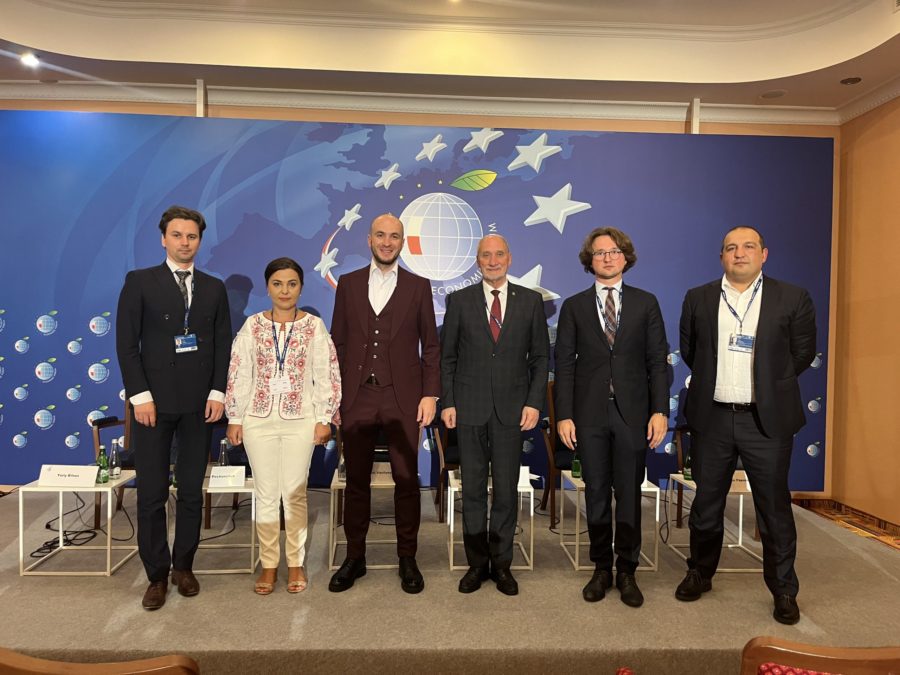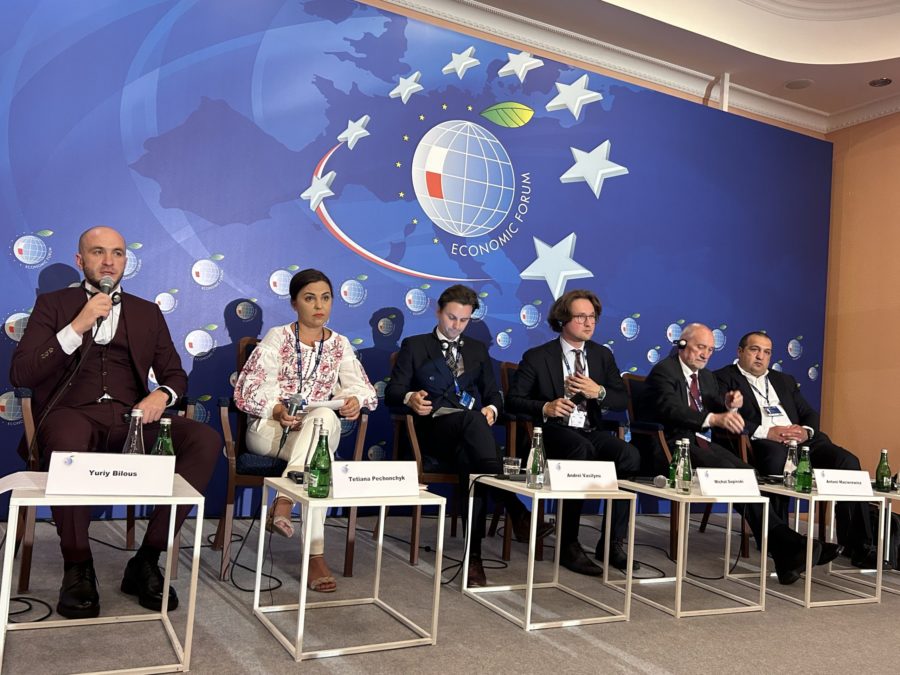ZMINA speaks about Russia’s war crimes at largest business forum in Central and Eastern Europe
Since February 24, 2022, the whole world has focused its attention on the crimes of the Russian military in Ukraine as unsolved crimes lead to an even greater scale of atrocities. Ukraine is seeking the creation of a special tribunal to hold Russia to account and make it pay compensation for damages. The Belarusian authorities, which support the attack on Ukraine, must also be held accountable. However, how to create an institutional framework to punish those who cannot be reached by the International Criminal Court and other global judicial institutions?

The issue was raised at the discussion “War and law. How to punish Russia for crimes in Ukraine?” which took place within the framework of the 32nd Economic Forum – the largest business conference in Central and Eastern Europe. The event took place in the town of Karpacz, Poland, on September 5-8.
As Tetiana Pechonchyk, Head of the Board of Human Rights Center ZMINA, noted during her speech, Russia has been consistently committing war crimes in Ukraine since 2014. Moreover, according to her, the number of crimes increases with each new round of aggression. Thus, before the full-scale invasion, 43 cases of enforced disappearances were recorded in occupied Crimea and hundreds of cases in Donbas. In particular, this concerns people who were illegally held and tortured at Izolyatsia prison. Since February 2022, there have been thousands of such cases.
Pechonchyk reported: according to the data from the Prosecutor General’s Office of Ukraine (PGO) and the UN, at least 9,000-10,000 civilians, including 503 children, have been killed since the beginning of the full-scale war, and another 15,000-16,000 people have been injured.
“These are minimal figures that cover confirmed and documented facts, but the real numbers may be much higher, because tens of thousands of people were killed in Mariupol alone, according to local authorities,” she added.
Pechonchyk noted that the PGO had already registered 103,000 criminal proceedings over alleged war crimes, Ukrainian courts delivered 54 judgments against Russian war criminals, but only 15 of them were in prisons in the territory of Ukraine. The rest were sentenced in absentia.
Both law enforcement agencies and civil society, in particular, ZMINA and other organizations of Ukraine 5 AM Coalition, continue to document war crimes and crimes against humanity committed during the Russian aggression to hold criminals, their leaders and the ruling elite of the Russian Federation to account.
As the human rights activist stressed, bringing the perpetrators of the most serious crimes in Ukraine to justice is a difficult task for the Ukrainian judicial system since almost all cases will be investigated at the national level.
At the same time, according to her, the role of international institutions is important, in particular that of the International Criminal Court, which can overcome diplomatic immunities and will target the highest-ranking war criminals and, in this context, already issued warrants of arrest for Russian president Vladimir Putin and Russia’s сommissioner for сhildren’s rights Maria Lvova-Belova.
At the same time, Pechonchyk said, one important element is missing in the existing architecture of justice, namely the punishment of the leadership of the Russian Federation, including Security Council members, for the crime of aggression against Ukraine. That is why, in her opinion, it is important to continue work on the creation of a special tribunal for the crime of aggression.

During the panel discussion, Michal Sopinski, Rector of the Academy of Justice, Poland; Antoni Macierewicz, Deputy of the Sejm, Poland; Andrei Vasilyeu, Expert in Human Rights Law of the National Anti-Crisis Management, Belarus; Simon Papuashvili, Programme Director at the International Partnership for Human Rights, Belgium shared their vision of how to bring Russia to justice and confiscate its frozen assets and property (in particular, in the territory of Poland) and how to punish the authorities of Belarus for crimes and participation in the war against Ukraine. The event was moderated by Ukrainian lawyer Yuriy Bilous.
The largest Economic Forum in Central and Eastern Europe was held in the town of Karpacz, Poland, on September 5-8, 2023, with the participation of many leaders of modern European politics and business, well-known representatives of culture and science. The slogan of this year’s 32nd Forum is “New Values for the Old Continent – Europe on the Threshold of Change”. The Forum was in the media spotlight, over a hundred journalists from European countries were accredited.
If you have found a spelling error, please, notify us by selecting that text and pressing Ctrl+Enter.















